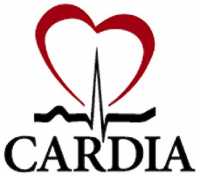AHA Journals, Author Interviews, Blood Pressure - Hypertension, Heart Disease / 21.12.2020
Systolic Interarm Differences in Blood Pressure Linked to Increased Cardiovascular Events and Mortality
MedicalResearch.com Interview with:
Chris Clark, PhD
Clinical Senior Lecturer in General Practice
Primary Care Research Group
St Luke's Campus, Exeter
MedicalResearch.com: What is the background for this study? What are the main findings?
Response: Various individual studies have suggested that a blood pressure difference between arms is associated with increased mortality and cardiovascular events since we first reported this association in 2002. Such studies have been limited, due to smaller numbers of participants, in the conclusions that could be drawn. Therefore we sought to pool data from as many cohorts as possible to study this association in more detail.
MedicalResearch.com: What are the main findings? Should it be standard practice to measure blood pressure in both arms?
Response: Systolic inter-arm difference was associated with increased all-cause and cardiovascular mortality. We found that all-cause mortality increased with inter-arm difference magnitude from a ≥5 mmHg threshold. Systolic inter-arm difference was also associated with cardiovascular events in people without pre-existing disease. This remained significant after adjustment for various internationally used cardiovascular risk scores, namely ASCVD, Framingham or QRISK2. Essentially we found that each increase of 1mmHg in inter-arm difference equated to a 1% increase for a given cardiovascular risk score.
When undertaking a cardiovascular assessment, or determining which arm should be used for blood pressure measurement, it is recommended to measure both arms.
(more…)












